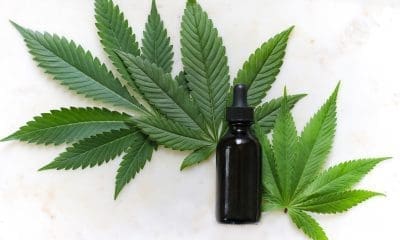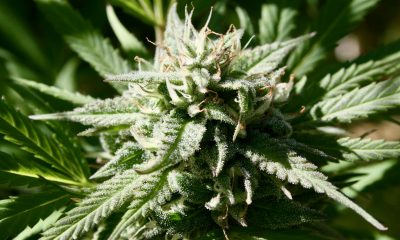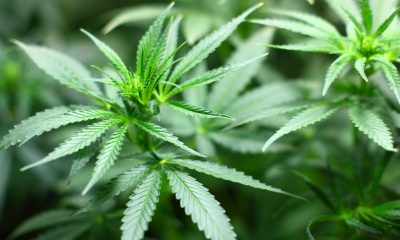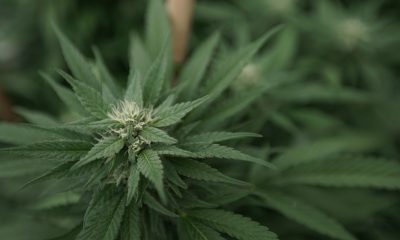Politics
Oregon Voters Could See Measure To Decriminalize All Drugs On 2020 Ballot
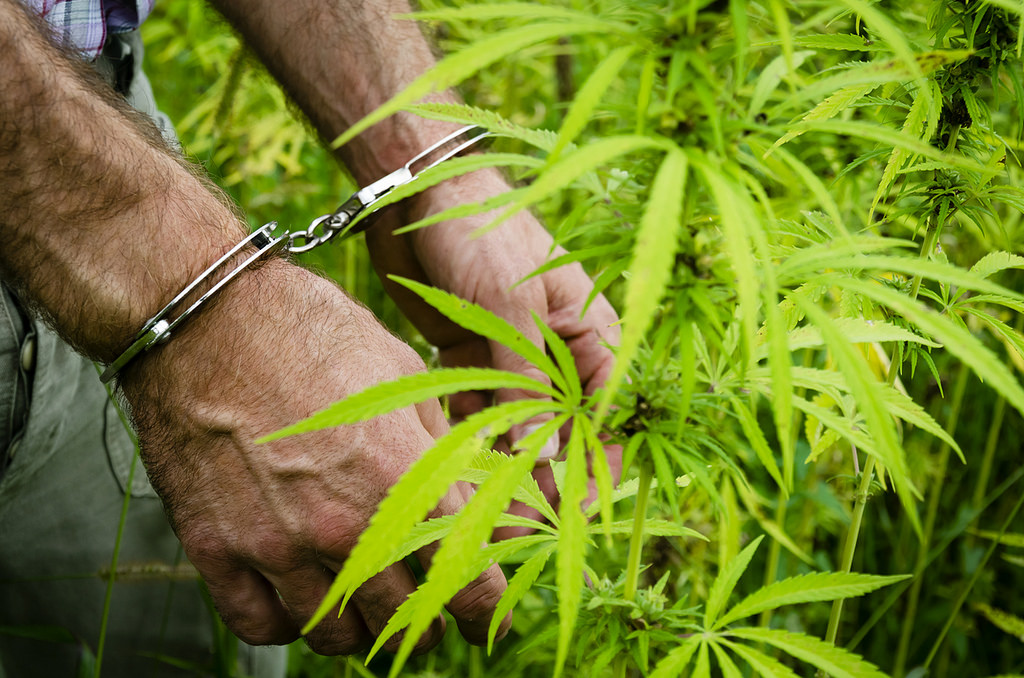
Reform advocates in Oregon quietly filed a proposed initiative last month to decriminalize low-level possession of all drugs that could appear before voters on the state’s 2020 ballot.
The measure, titled the “Drug Addiction Treatment and Recovery Act,” places an emphasis on the need to treat drug addiction as a public health issue, rather than a criminal justice matter. Possession of small amounts of illegal substances, including heroin and cocaine, would be considered a class E violation, punishable by a maximum $100 fine and no jail time.
There would be an option to avoid the fine by completing a health assessment through an addiction recovery center. That process would involve a substance use disorder screening from a licensed health professional.
Manufacturing and distributing controlled substances would still cary heavy penalties, including felony charges.
Additionally, the initiative would use tax revenue from legal marijuana sales to establish grant programs designed to significantly expand access to addiction treatment services throughout the state.
Petitioners said that the purpose of their measure is to “make health assessment, treatment and recovery services for drug addiction available to all those who need and want access to those services and to adopt a health approach to drug addiction by removing criminal penalties for low-level drug possession.”
Advocates are still in the early phases of determining whether they will be able to mount a well-funded effort to qualify the measure for next year’s ballot.
“It’s too early to know if this initiative petition will go forward—Oregon has a long process—but I hope it does, because we desperately need it,” Anthony Johnson, a chief petitioner on the campaign, told Marijuana Moment in an email. “Oregon ranks 50th in the country in access to drug addiction treatment, and I’m hopeful about the prospect of redirecting a portion of cannabis tax revenue so that everyone struggling with addiction can have access to the treatment services they need.”
Johnson also served as chief petitioner for Oregon’s successful 2014 marijuana legalization effort.
Another petitioner listed on the new drug decriminalization measure is Janie Gullickson, executive director of the Mental Health & Addiction Association of Oregon.
Oversight of the drug treatment grant program funded by the initiative would be the responsibility of a council that would be established by the Oregon Health Authority. The body would be tasked with expanding access to health services by providing funding to organizations that are “evidence-informed, trauma-informed, culturally responsive, patient-centered, and non-judgmental.”
An example of an eligible health provider would be one that offers harm reduction interventions, including “overdose prevention education, access to naloxone hydrochloride and sterile syringes, and stimulant-specific drug education and outreach.”
Talk of a prospective all-drug decriminalization proposal being introduced in Oregon led the founders of a separate reform group, Oregon Psilocybin Society (OPS), to drop similar provisions from their proposed 2020 measure to legalize psychedelic mushrooms for therapeutic purposes.
OPS said that part of the reason it omitted decriminalization language from a revised draft of their measure was because it heard that the Drug Policy Alliance (DPA) planned to introduce a separate initiative that would remove the threat of jail time for any kind of low-level drug possession charge.
DPA confirmed to Marijuana Moment that it is considering getting involved in multiple potential state-level decriminalization efforts but said it hasn’t yet decided whether to support a full-scale effort to qualify the Oregon proposal for the ballot.
“We’ve been looking at a number of states, including Oregon, that could benefit from moving towards a health-centered approach to drugs and away from criminalization,” Matt Sutton, DPA’s director of media relations, said in an email. “At this point in time, we have connected with various groups on the ground and are exploring all of our options.”
“It is much too soon to determine whether or not we will move forward with this measure, however, the process to get something on the ballot in Oregon can be lengthy, and we wanted to make sure the door was still open for the potential measure to proceed,” he said.
Regardless of what DPA chooses to do in the state, the change to OPS’s original psilocybin measure has already caused conflict among other reform organizations who insist that therapeutic legalization should be coupled with decriminalization, regardless of what outside groups are pursuing.
Oregon’s attorney general issued a certified ballot title for the psychedelic mushroom initiative on Friday, and now petitioners are cleared to collect the required 112,020 valid signatures from voters by July 2, 2020 in order to qualify the measure for the November ballot.
If the state Elections Division determines this month that petitioners on the drug decriminalization measure submitted at least 1,000 valid initial signatures, the attorney general would then have five business days to prepare a draft ballot title.
Read the general resolution of the drug decriminalization initiative below:
DRUG ADDICTION TREATMENT AND RECOVERY ACT
Whereas, Oregonians need adequate access to drug addiction treatment. Oregon ranks nearly last out of the 50 states in access to treatment, and the waiting lists to get treatment are too long. Every day, one or two Oregonians die because of drug overdoses. Drug treatment and recovery ought to be available to any Oregon resident who requests it.
Whereas, Oregonians suffering from substance use disorder also need adequate access to recovery services, peer support and stable housing. One in every 11 Oregonians is addicted to drugs. Drug addiction exacerbates many of our state’s most pressing problems, such as homelessness and poverty.
Whereas, Oregon needs to shift its focus to addressing drugs through a humane, cost-effective, health approach. People suffering from addiction are more effectively treated with health care services than with criminal punishments. A health care approach includes a health assessment to figure out the needs of people who are suffering from addiction, and it includes connecting them to the services they need.
Whereas, Oregon still treats addiction as a criminal problem. Law enforcement should spend more time on community safety, but Oregon law enforcement officers in 2017 arrested more than 8,000 people in cases where simple drug possession was the most serious offense. In many instances, the same people were arrested for drug possession, again and again, because they are unable to get treatment.
Whereas, punishing people who are suffering from addiction ruins lives. Criminalizing drugs saddles people with criminal records. Those records prevent them from getting housing, going to school, getting loans, getting professional licenses, getting jobs and keeping jobs. Criminalizing drugs disproportionately harms poor people and people of color.
Whereas, punishing people who are suffering from addiction is expensive. It costs an average of $15,000 per case where a misdemeanor drug conviction is the most serious offense. That is more than the typical cost to provide treatment.
Whereas, marijuana tax revenue has grown significantly. Oregon now receives more than $100 million in marijuana tax revenue a year. The amount of marijuana revenue is expected to grow by more than $20 million per year.
The People of Oregon therefore propose this Drug Addiction Treatment and Recovery Act of 2020 to expand access to drug treatment and recovery services and pay for it with marijuana tax revenue.
Oregon Campaign To Legalize Psychedelic Mushrooms For Medical Use Cleared For Signature Gathering




